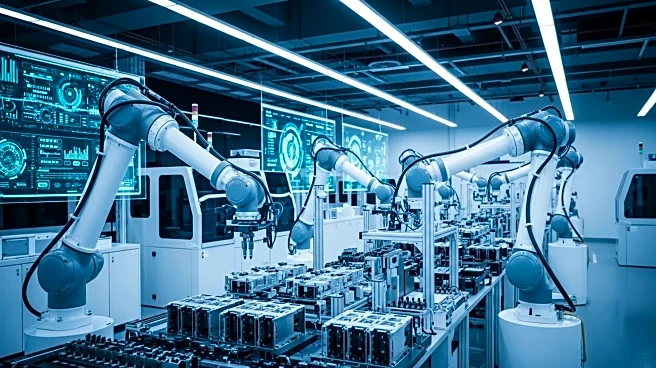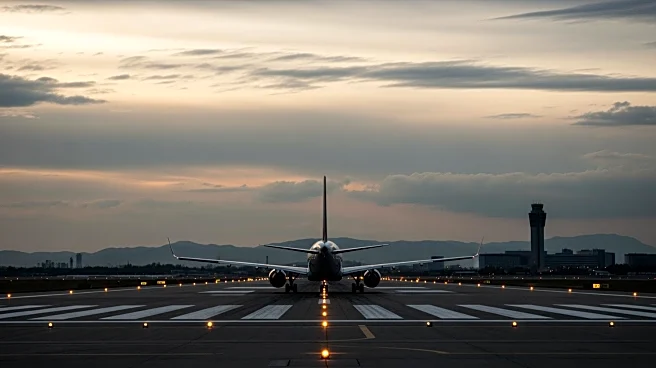What is the story about?
What's Happening?
Delta Electronics, a prominent player in the technology sector, is advocating for Southeast Asia to become a manufacturing superpower. David Leal, Vice President of Southeast Asia strategic alliance development at Delta Electronics, emphasized the need for increased research and development and investment in the region. The Asia-Pacific region has been a significant contributor to the renewable energy transition, growing at an annual rate of 34% since 2004, according to KPMG. Despite Southeast Asia accounting for 6% of global GDP and 5% of global energy demand, it attracted only 2% of global clean energy investment in 2024, as reported by the International Energy Agency (IEA). The IEA suggests that a fivefold increase in investment, amounting to US$190 billion by 2035, is necessary to meet energy and climate goals. Delta Electronics sees an opportunity for Australia and its neighbors to play a crucial role in technological transformation, particularly in energy-efficient data centers and technology hubs.
Why It's Important?
The push for Southeast Asia to become a manufacturing superpower is significant for several reasons. It highlights the region's potential to drive global technological transformation, particularly in renewable energy and digital infrastructure. Increased investment in clean energy and technology could bolster economic growth and energy resilience, benefiting industries across the region. For Australia, this presents an opportunity to strengthen its role in infrastructure and industrial transformation projects, aligning with Delta Electronics' vision. The focus on energy-efficient solutions and low environmental impact technology hubs could position Southeast Asia as a leader in sustainable development, attracting further investment and fostering innovation.
What's Next?
The foreseeable next steps involve increasing investment in clean energy and technology infrastructure in Southeast Asia. Stakeholders, including governments and private sectors, may need to collaborate to achieve the necessary investment levels to meet energy and climate goals. As demand for electricity in the region is expected to grow at an annual rate of 4%, clean energy sources like wind and solar are projected to meet a significant portion of this demand by 2035. Delta Electronics is likely to continue its focus on supporting digital infrastructure evolution in Australia and neighboring areas, potentially leading to new partnerships and projects that enhance energy resilience and technological capabilities.
Beyond the Headlines
The deeper implications of Southeast Asia's rise as a manufacturing superpower include potential shifts in global economic power dynamics. As the region strengthens its role in renewable energy and technology, it may influence international trade patterns and investment flows. The emphasis on sustainable development could also drive cultural and ethical shifts, promoting environmental responsibility and innovation. Long-term, this development could contribute to global efforts to combat climate change and foster economic stability, impacting societies and economies worldwide.

















